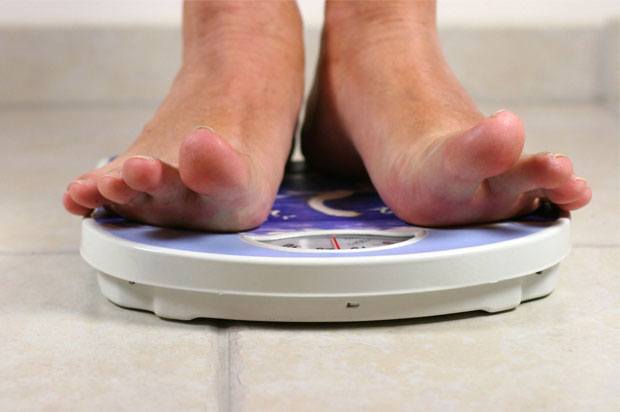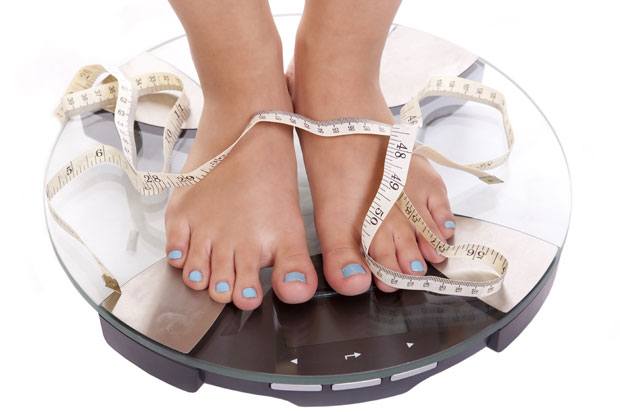Fast diet, fad diet
Although you could be fooled into thinking that crash and fad diets will give you a quick fix solution, be careful how you treat your body.

The healthiest way to lose weight is to take your time
Crash diets
Shocking your body with a sudden low-energy food regime often appears to be working after just a few days. There’s a rapid weight loss, making it look like the plan is working. At this point, you haven’t actually lost any fat; all that’s happened is that you’ve used up the body’s limited store of glycogen, a form of carbohydrate. As you use up the glycogen, your body loses water with it, so you appear to be losing weight very quickly.
Healthy eating self-assessment
Don’t deprive yourself
- Crash dieting tends to make dieters tired, irritable, and lethargic, and brings on food cravings.
- There are no ‘special combinations’ of certain foods (e.g. cabbage and watercress soup) that will boost your metabolism enough to help you lose weight. If you’re a large overweight person, you’ll actually have a higher metabolism than a smaller person anyway, simply because you have a heavier mass of body tissues.
Health risks
- You are at risk of not getting enough vitamins and minerals to stay healthy if you severely restrict your food intake.
- After using up your glycogen, you will start losing weight from your body’s tissues, as your body frees up energy to keep you going. Crash diets do this too quickly to be healthy.
- What many diet plans do not tell you is that you are using up protein (e.g. from your muscles) as much as you are using up fat.
- Even if you don’t give a monkey’s about being healthy, and just want results for vanity purposes, it’s important to realise fast weight lost can just as easily be put back on.
The yo-yo effect
- Weight often goes back on as fat, leaving you with more fat and less protein than you started off with, which leaves you feeling even more out of shape than before, and can start off a vicious circle of yo-yo dieting.
- Yo-yo dieting messes up your metabolism, and may even raise the levels of harmful cholesterol in the blood, increasing your risk of arterial disease and heart problems.
Fad diets
It seems as though there’s a new miracle diet book published every week. We all know someone who is doing one. It’s big business, with everybody looking for the magic answer that will make them slim and attractive. However, many of these diets are useless and/or downright dangerous.
- A report by the experts at Which magazine earlier this year condemned a number of fad plans, including low-carbohydrate diets, cabbage soup diets and the ‘Eat fat, get thin’ diet where the author actually stated that exercise is not important (yeah, right).
- Many fad diets work by having illogical rules that make it too difficult to eat many different foods. The side effect of this is that you take in fewer calories. One other nasty effect is that it prevents you from eating a wide range of foods, and variety is essential for good health.
- Beware of claims and theories that appear scientific, but have no scientific studies to back them up. Testimony from a famous person is just not good enough.
- Moderately reduced-fat diets are often OK, but avoid super-low-fat ones. Your body still needs to take in a few essential fatty acids with your food.
- Low-carbohydrate and high-protein plans are potentially dangerous. The diets often contain too much saturated fat and not enough fibre, and lack of carbohydrate can put the body into ketosis. Ketosis is an abnormal metabolic state with unpleasant side effects such as bad breath and nausea. The diet can also place a strain on the kidneys. The ‘science’ behind the diet has been disagreed with.
- There is no evidence to support the theory that you should avoid eating carbohydrates and proteins at the same meal.
- There is no proof that you need a special diet to go with your blood type. A small serving of a low calorie food (such as kidney beans) cannot make you gain weight, it isn’t scientifically possible.
- Detox diets are supposed to rid the body of ‘impurities’.Nobody has ever been able to say what these supposed impurities actually are. Although detox diets often claim to get rid of cellulite,it’s important to realise that cellulite is only fat that’s been laid down in a particular way in certain parts of the body…it isn’t a disease.
The best solution
Here’s the bit nobody wants to hear. The best way to get down to your healthy weight and feel and look your best is to do it slowly. A balanced diet and moderate regular exercise will gently get you toned up, and keep the weight off for good.
Picture of feet on scales by Shutterstock.
Next Steps
- Chat about this subject on our Discussion Boards.
- Need help but confused where to go locally? Download our StepFinder iPhone app to find local support services quickly.
By
Updated on 22-Dec-2015
No featured article














